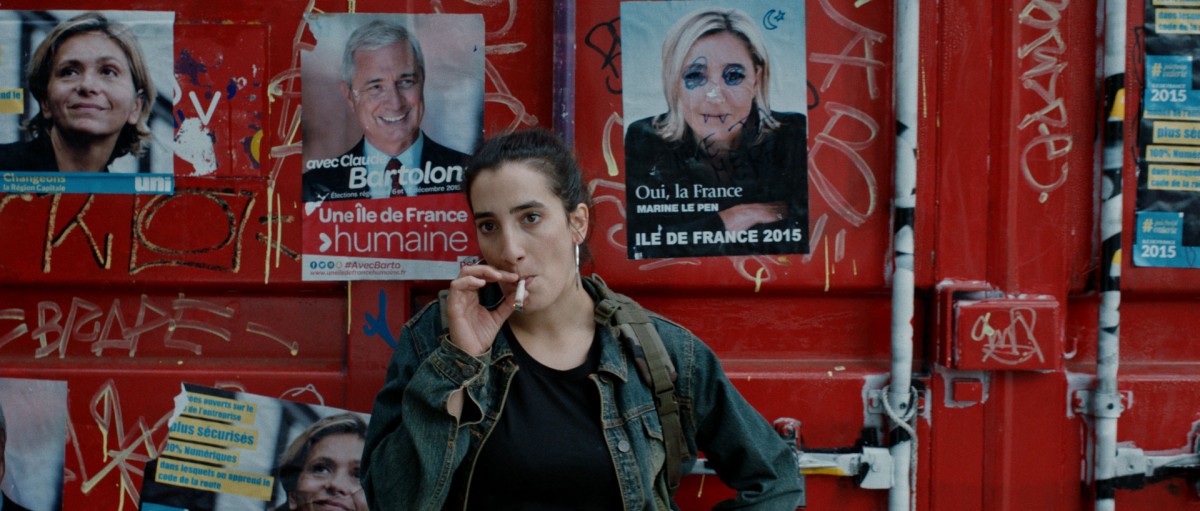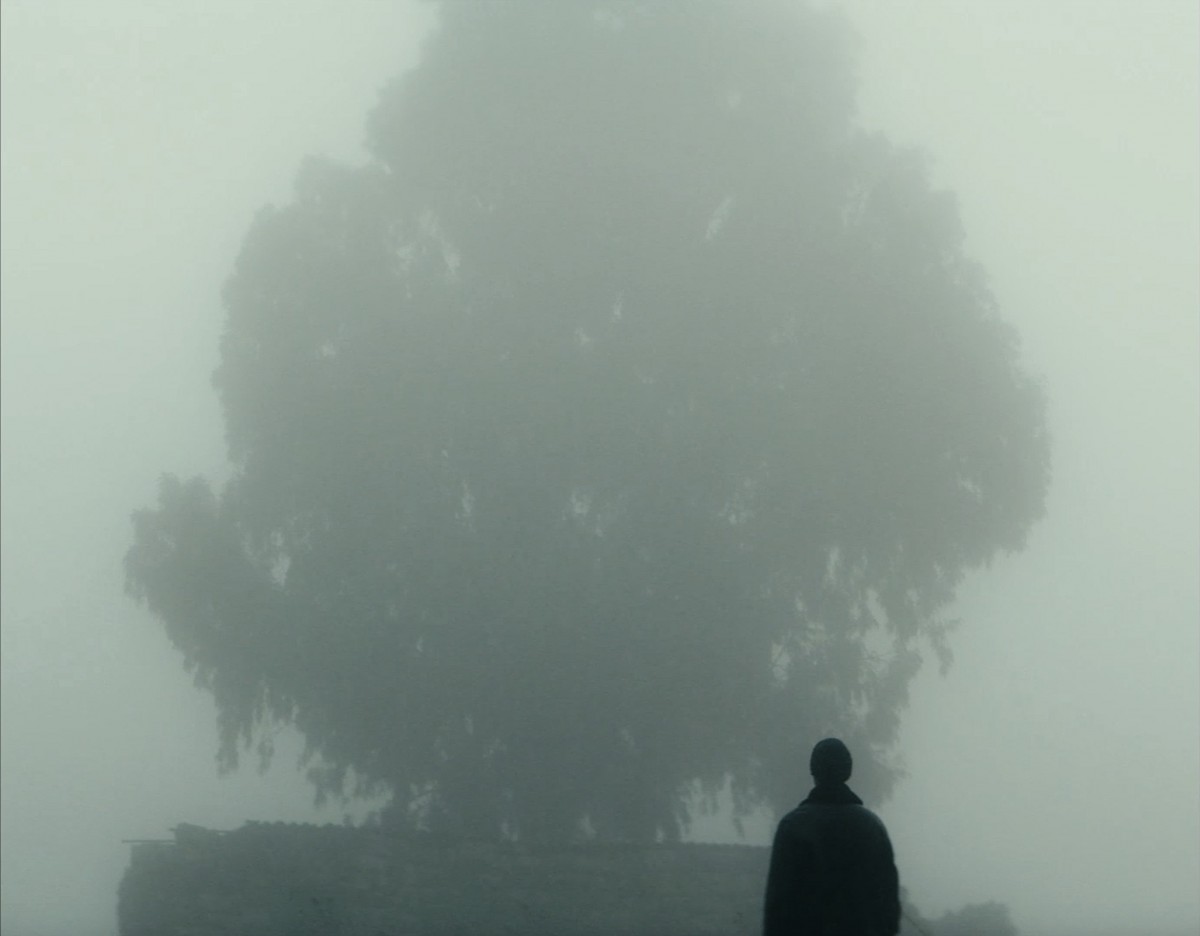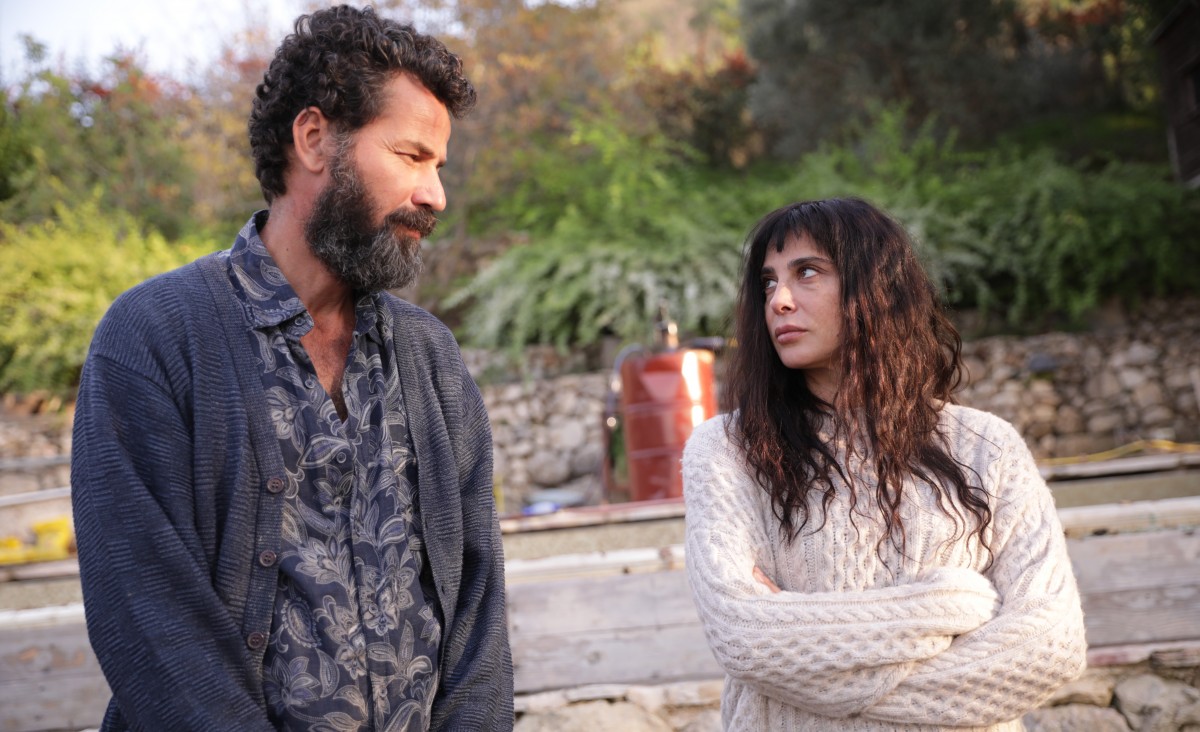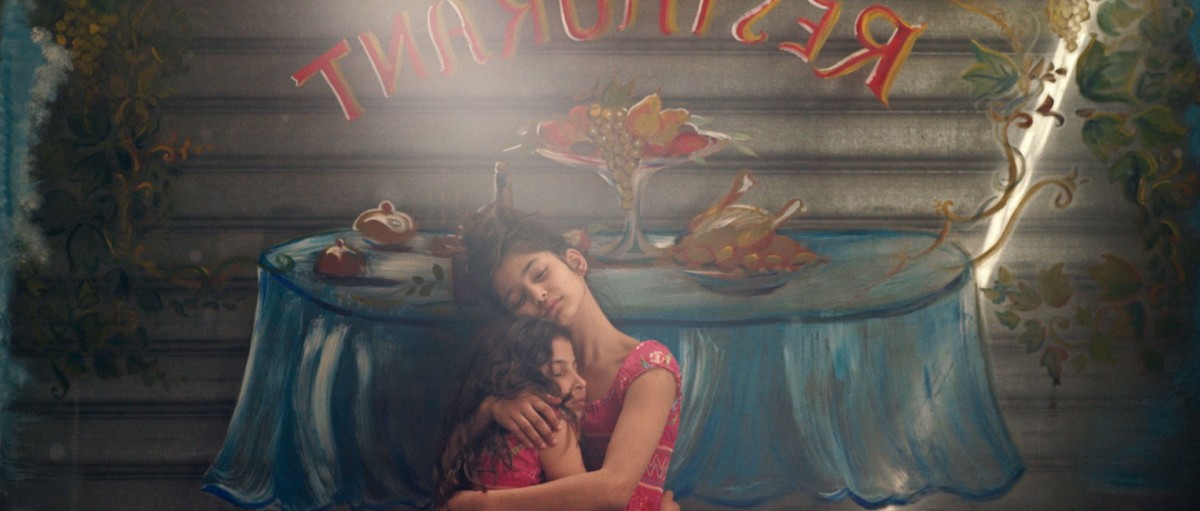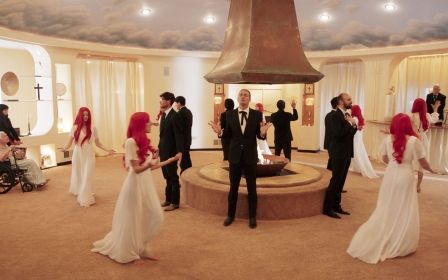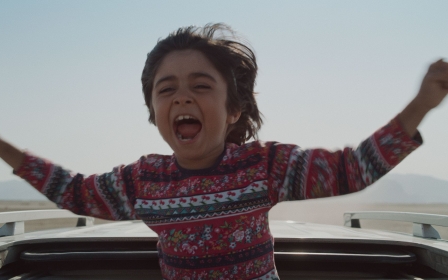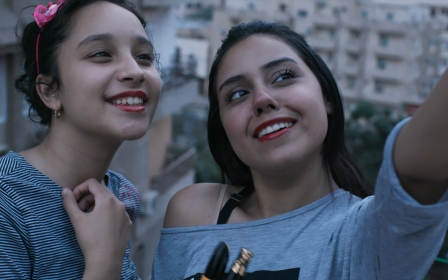Venice Film Festival: Golan ghosts, Kurdish demons and tired terror drama
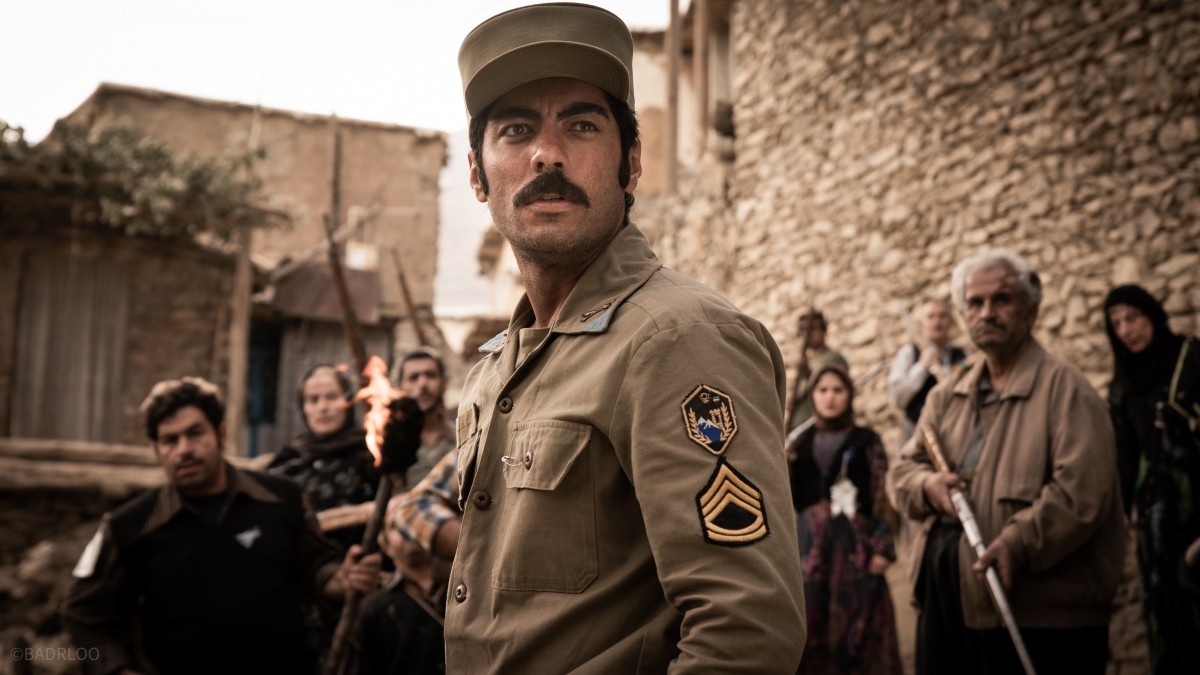
The 78th Venice Film Festival may be remembered for a variety of reasons: the ticketing fiasco; Ben Affleck and Jennifer Lopez appearing together in public for the first time in 18 years; Oscar Isaac planting a kiss on Jessica Chastain’s arms at the Scenes of a Marriage series premiere; or the stellar, eclectic competition that aptly balanced emerging gems with new masterworks by some of the world’s biggest auteurs.
Less publicised though, is how the 2021 Biennale, which concluded on 11 September, was the festival’s most political edition in many years. Every section of the selection featured political works brimming with rage, defiance, and a palpable desire for challenging archaic narratives.
Four of the competition films tackled police and military brutality head-on, including American Paul Schrader’s The Card Counter about an ex-military officer haunted by his disgraceful past in Abu Ghraib.
Often accused of playing second fiddle to Cannes, with a roster largely comprised of frothy fare, Venice 78 represents another new chapter for the world’s oldest film festival, engaging with the realities of the day in a fashion unwitnessed in a long time.
New MEE newsletter: Jerusalem Dispatch
Sign up to get the latest insights and analysis on Israel-Palestine, alongside Turkey Unpacked and other MEE newsletters
Dune and Hollywood couples may have snatched the headlines this year, but it’s the confrontational politics of the aesthetically diverse film lineup that will sustain the conversation about a possible new direction for a festival constantly shaped by the evolution of the market. And it’s this market evolution that shall determine the significance of film festivals and the fate of smaller films.
As trade publications slash budgets, limiting their coverage to mostly blockbusters, and global markets continue to grapple with restrictions due to the lingering pandemic, smaller, serious-minded films continue to fight for exposure.
Once a surefire ticket for international distribution and global viewership, the inclusion in major festivals like Venice or Cannes could mean little in the life-course of low profile films from developing cinemas.
Middle Eastern films face the same fate. With one eye on the tastes and politics of film festivals and another on reaching a potentially broader audience, the Middle Eastern selection at Venice seems to have been divided into camps, with some films veering towards ostentatiously political subjects packaged in diverse formats, and others leaning towards more accessible aesthetics and watered-down subjects.
While Berlin and Cannes have exhibited the ambition, maturity and adventurousness of the region’s established and budding filmmakers, Venice has shown the immaturity and lack of confidence a considerable number of the region’s directors suffer from.
Some of the featured filmmakers may go on to hone their craft and deliver subsequent worthy works; others may have inflicted too much damage to incite any faith in whatever they may churn out in the future. Whatever course Middle Eastern cinema may take next, programmers should finally realise that topicality alone doesn’t translate to quality cinema.
The Stranger (Al Garib)
Of all the war-torn places in the Middle East, the Golan Heights has been the least represented in cinema. A rural Syrian region that has been occupied by Israel since 1967, the Golan Heights is a purgatory of sorts: a territory co-controlled by Israel and Syria, populated by both Israeli settlers on the western part and Arabs - whose affiliation lies primarily with Syria - on the eastern side.
The Hamburg-based, Golan-born director Ameer Fakher Eldin astutely captures that region’s inherent sense of loss and struggle with identity in his haunting, deeply affecting debut feature, the standout Middle Eastern film of Venice 2021.
Palestinian star Ashraf Barhom (Lebanon, The Kingdom), in one of the most nuanced performances of the year, is Adnan, an unlicensed Moscow-educated physician who has given up on meeting the expectations of his unsympathetic father (veteran Palestinian thespian Mohammad Bakri), who has recently disinherited him.
Estranged from his daughter and wife, who desire to begin a new life outside the Golan, he drowns his aimlessness and disenchantment in alcohol, purposelessly passing his days with a small group of friends who share his lack of drive for change. Adnan’s life is turned upside down when he stumbles upon a wounded Syrian soldier whose identity and political association are never revealed. The arrival of the soldier injects Adnan’s life with a newfound sense of meaning, but it proves to be short-lived.
Gripping, deeply poetic, and precise in its vision, The Stranger is an incisive, meditative work of wounds that don’t heal
Loaded with ominous silences and abundant with haunting nature imagery that recalls the work of the great Russian master Andrei Tarkovsky, Fakher Eldin evocatively captures the overriding desolation of a forgotten place that has been stranded in time for more than half a century.
Filmed with an aching tenderness, the misty hills and ancient trees stand as silent witnesses to incarcerated lives that have lost the will to fight. Adnan has been thrust into a futile and eternal existential battle to save his soul – an emblem of a broken masculinity passed on from one generation to another, and a toxic, destructive trap he never succeeds in fleeing.
Gripping, deeply poetic, and precise in its vision, The Stranger is an incisive, meditative work of wounds that don’t heal; of decades-long psychological trauma; of the unrealistic and debilitating burden of manhood; and of a place that may never attain its freedom.
Fakher Eldin’s unshowy approach and atypical subject matter may have rendered The Stranger in a lower pegging order to other high-profile and larger-budgeted stories from the region, but for my money, this is one of the true great findings of Venice 78.
Zalava
Winner of the Critics’ Week Grand Prix and International Federation of Film Critics (FIPRESCI) award, this Iranian period picture marks a much-welcomed, if not entirely successful, foray into the horror genre.
Set in 1978 in a Kurdish village habitually threatened by invasive demons who can only be exorcised if they are shot, or stabbed in the leg, the story comes into action when the young daughter of the village chief allegedly becomes possessed. The suspicious sergeant Massoud (Navid Pourfaraj) ventures to discredit the exorcist Amardan (Pouria Rahimi Sam) and prove that the entire ordeal is nothing but sheer delusion.
The first feature of Kurdish-Iranian director Arsalan Amiri is a handsome, at times intriguing pic that otherwise utilises horror tropes in a straightforward, uninventive fashion. The creaking doors, menacing empty jars (where the demons are supposedly ensnared) and dim cinematography infuse the film with a familiar gothic atmosphere catering for the occasional shock rather than sustained dread.
Equally familiar is Amiri’s discourse of science vs superstition – a theme nonetheless rendered all the more pertinent in the Covid era. With Massoud himself gradually questioning his unbending convictions, Amiri does not present a concrete or clear stance on the subject, depriving his treatise of the depth and complexity it thoroughly needs.
The film is not bereft of merits – the overall chilling mood, dark humour, and commanding performances grant the viewer plenty to chew on. But seasoned horror aficionados will find the film low on scares, and while the look of the film is undoubtedly eye-catching, the predictability of the proceedings ultimately leaves a lot to be desired.
Costa Brava
With a $1.5m budget, a star-studded cast featuring Nadine Labaki and Palestinian star Saleh Bakri (Wajib, The Present, The Time That Remains) and a Cannes-nominated short under her belt (2016’s Submarine), no other Middle Eastern film that premiered in Venice this year attracted the extensive fanfare that initially greeted Lebanese director Mounia Akl’s highly anticipated film.
While nowhere as disastrous as Mohamed Diab’s Amira, the 32-year-old’s first foray into feature filmmaking is largely a letdown: a middle-of-the-road environmental pic/dysfunctional family drama/coming-of-age story unsure of what it aspires to be or what exactly it wants to convey.
Bakri is the stubborn patriarch of a small Lebanese family who, disillusioned with Beirut, has decided to move his wife, two daughters and mother to an off-grid house in the mountains. Torn between the father’s protective reclusion and the mother’s itching for the bustling, revolution-rocked Beirut, the two daughters become idle witnesses to their parents’ collapsing marriage. The sudden erection of a garbage landfill outside their house augments the family crisis as the country descends into further bedlam.
On paper, Costa Brava appears to be a toothless, tamer Dogtooth – the story of an over-protective father resorting to extreme measures to shield his family from the ills of urban life.
Costa Brava is a cold, affectionless film, too distracted with properly weaving its myriad disharmonious strands to deliver an emotionally engaging story
What it is that the father is protecting his family from is never clarified, and neither is the significance of Beirut to the story. Is the Lebanese capital supposed to represent the toxic metropolis? The moral decadence of the political elite? The draining sectarian battleground?
In the absence of specific, or at least implied, motivations, the father ends up being a cantankerous, irritating archetype…a caricature. The need for a more detailed positioning of Beirut may have been avoided had Akl chosen not to set the film against the widespread mass protests of 2019. As such, the politics of the story, whatever they may be, come off as rushed and slight. The decision to insert the Beirut explosion at the very beginning of the film saddles the story with dramatic expectations it never realises and eventually transpires as an exploitive and forced ploy.
Little happens in the middle section of the film when the five members of the family appear to be waiting for disaster to hit. The stagnation and unintentional repetitiveness of the drama does not translate into any desired induced mood, but rather boredom – a sensation this writer seldom experiences in the slowest of films.
Throughout the film, Akl keeps her viewers at arm’s length from her characters, never penetrating their psyche. Costa Brava is a cold, affectionless film, too distracted with properly weaving its myriad disharmonious strands to deliver an emotionally engaging story.
The weakly scripted drama is unaided by Akl’s lack of aesthetic viewpoint. The unjustified naturalism of her lens stands at odds with the high concept of the story; in other words, there is no philosophical perspective behind the visual structure of the film.
While some scenes do provide profound insight into the mental state of its protagonists, many others feel like disjointed, ill-placed snippets of a music video. Equally lacking is the characters’ relationship with their environment, rendering the picture all the more flat, and raising more questions about the father’s motivations to move to the mountains.
There are several saving graces to Akl’s filmmaking, however. Her direction of actors is superlative, especially when it comes to Labaki who gives her most soulful screen performance to date. Some sequences bristle with poignancy and compassion, an upshot of the palpable emotional genuineness of the storytelling. Most of all, Akl provides a snapshot of a Lebanon on the brink of extinction, of a divided nation inhabited by weary souls destined to depart sooner or later. All of this provides an indication of the accomplished film that might have been, had Akl followed a more focused method.
You Resemble Me
The debut feature of Egyptian-American video reporter turned filmmaker Dina Amer is a dramatisation of the life and times of Hasna Ait Boulahcen, who is believed to be France’s first female suicide bomber, from her destitute childhood to her death at the age of 26 in 2015.
The first segment of the film charts Boulahcen's turbulent childhood alongside her sister Miriam (played by real-life sisters Lorenza and Ilonna Grimaudo). Entrenched in poverty and neglected by a rancorous, violent mother and an absent gambler father, the sisters have no one else to care for but each other.
Resorting to shoplifting and taking shelter in the hostile streets of Paris, Boulahcen is eventually separated from her sister by social services, who place her in the custody of a white middle-class family headed by an uptight matriarch who forces her to eat pork “out of politeness”.
The second part sees an older, jaded Boulahcen scraping to make a decent living for herself having spent her early twenties in prostitution and menial jobs. Bereft of a higher education and with no institution willing to hire her, she finally finds respite in her cousin crush, Abdelhamid (Alexandre Gonin), an Islamic State group fighter who soon radicalises and recruits her.
Executive produced by Spike Lee and Spike Jonze, You Resemble Me is an unabashed piece of misery porn; an exploitative, ugly picture modelled after the similarly manipulative melodramas of Egyptian director Khaled Youssef. Shot with shaky handheld camera in real locations, Amer strives for a realism unrealised by her cartoonish black and white world of the marginalised Arabs and unsympathetic whites.
Amer paints her characters as oppressed victims of a cannibalistic, white France hell-bent on denying its Arab women from any choices
Played by three different actors, including Amer herself, using the Deepfake technology (a hyper realistic advancement on Photoshopping), Amer posits that Boulahcen could have been any Arab Muslim immigrant had their destinies diverged. That is a naive oversimplification that discounts countless socio-economic factors and eliminates human choice from the equation.
Amer’s directorial ideology is alarmingly deterministic; she paints her characters as oppressed victims of a cannibalistic, white France hell-bent on denying its Arab women from any choices. Her thin thesis is thus no different from the same tired narrative western media has been propagating about the Arab European fundamentalists: that their radicalisation was an inevitable consequence of their disenfranchisement. Hasna remains blameless throughout the story; her actions and choices are never scrutinised.
Amer does not challenge this terribly common narrative, nor does she offer any different or reflective insight into the subject. At a time when French-Arab directors such as Hafsia Herzi and Leyla Bouzid are presenting fresh takes on the Arab experience in Europe, one can’t help but wonder what political purpose You Resemble Me serves exactly.
In the last segment of the story, Amer introduces documentary interviews with Miriam designed to lend the film credibility and legitimacy. In it, Miriam states that “Hasna was loved by everyone”, except that we never see this expressed love in the film. What we get instead is a joyless exercise in cruelty that left this writer in desperate need of a mental bath.
The late American critic Roger Ebert once wrote that the main difference between Shakespeare and Greek tragedies is that, contrary to the former, the latter painted a world where humans have no choice. Refusing to subscribe to Amer’s nihilistic, intellectually inane worldview, I prefer Shakespeare.
'Costa Brava', Lebanon will have its British premiere at the London BFI film festival and is currently showing at the Toronto Film Festival
Middle East Eye delivers independent and unrivalled coverage and analysis of the Middle East, North Africa and beyond. To learn more about republishing this content and the associated fees, please fill out this form. More about MEE can be found here.


